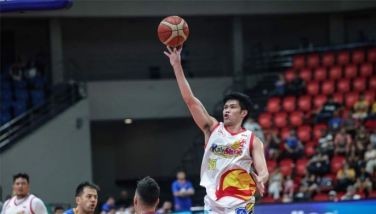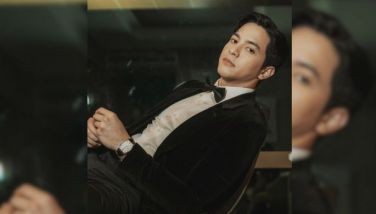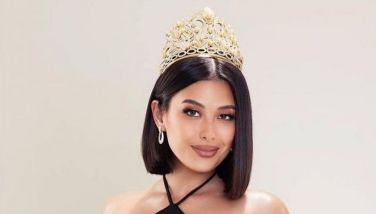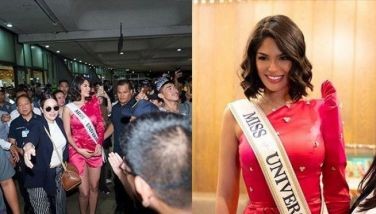Why the fuss on naturalization?

MADRID – It’s eerie that after all these years that FIBA has allowed the entry of naturalized players in international competition, there are still a few narrow-minded individuals opposing the concept of globalization in sports.
Spain, which is hosting the FIBA World Cup this year, was a leading proponent of naturalization. Among the earliest naturalized citizens to compete in FIBA tournaments were Americans Cliff Luyk and Wayne Brabender who both played for Spain. Luyk, a Syracuse native from the University of Florida, suited up for Spain at the 1968 and 1972 Olympics and won six Euroleague titles with Real Madrid. Brabender, who is from Minnesota, played on the Spanish national team at the 1972 and 1980 Olympics and 1974 and 1982 World Championships, now known as the World Cup. Two other naturalized players who wore the Spanish colors proudly were Candido Sibilio of the Dominican Republic and Juan Domingo de la Cruz of Argentina.
Australia is another proponent and through the decades, has played a slew of naturalized players, including Rocky Crosswhite who saw action for Davidson in the US NCAA and later for Australia in three Olympics. Crosswhite was the Australian skipper in two of his three Olympics. He was captain of the Australian squad at the 1974 FIBA World Championships in Puerto Rico. Other naturalized players who became Boomers were Ricky Grace, Darryl McDonald, Shawn Redhage and Scott Fisher.
Even global basketball powerhouses USA and Russia went the naturalization route in strengthening their national teams. Hakeem Olajuwon of Nigeria was naturalized to play for the US at the 1996 Atlanta Olympics. Panama’s Rolando Blackman, Virgin Islands’ Tim Duncan and Jamaica’s Patrick Ewing also played for the US in international wars. Russian president Vladimir Putin himself signed the naturalization papers of Bucknell University point guard J. R. Holden who led the national team to the European title in 2007. After Holden, Russia naturalized another American Kelly McCarty for the 2009 European championships. The Russian national women’s squad also welcomed naturalized player Becky Hammon to its ranks.
Through the years, Japan has naturalized Dan Weiss, Eric McArthur and lately, J. R. Henderson of UCLA. Others who took out foreign passports were Bo McCalebb of Macedonia, Marquez Hayes of Georgia, Trey Johnson and Jarvis Hayes of Qatar, Rasheim Wright and Jimmy Baxter of Jordan, Quincy Davis of Chinese-Taipei and Jerry Johnson of Kazakhstan.
* * * *
The FIBA rule in the 1980s was each country could play two naturalized citizens and their eligibility was premised on a three-year residence. When Olajuwon was naturalized overnight, a US lobby pressed FIBA to grant instant eligibility and starting in 1996, the only requirement was the submission of citizenship documents. Residency was no longer required.
At the 1985 FIBA-Asia Championships in Kuala Lumpur, the Philippines coached by Ron Jacobs won the title behind two naturalized players Jeff Moore and Dennis Still. Chip Engelland was then serving residency and would’ve been eligible to play for the national squad in 1987. At the Jones Cup in 1985, the Philippines won over the US in overtime with Moore, Still and Engelland because the Taiwan tournament wasn’t supervised by FIBA and allowed an unlimited number of imports.
Today, FIBA permits only one naturalized player per country with no residency rule. At the coming FIBA World Cup, naturalized players are expected to dominate the stat sheets. Host Spain hasn’t decided on which naturalized player to enlist. The choice is between the Congo’s Serge Ibaka and Montenegro’s Nikola Mirotic. Imagine a national team with the Gasol brothers, Ricky Rubio, Rudy Fernandez, Sergio Rodriguez, Jose Calderon and Juan Carlos Navarro yet coach Juan Antonio Orenga isn’t taking any chances by bringing in a naturalized player.
In the Philippines’ bracket, the naturalized players from opposing teams are Croatia’s Dontaye Draper of the College of Charleston, Puerto Rico’s John Holland of Boston University, Senegal’s Louis Adams of South Carolina State and Greece’s Giannis Antetokounmpo of Nigeria. A naturalized player who may be activated for Puerto Rico instead of Holland is Richard Chaney. Only Argentina won’t enlist a naturalized player because the national team is overloaded with talent like Manu Ginobili, Luis Scola, Carlos Delfino, Pablo Prigioni and Andres Nocioni.
Myopic basketball fans who can’t seem to embrace the trend of globalization refuse to accept the concept of naturalization to enhance the national team. They’re obviously living in the past. The world has evolved and basketball is no exception in moving towards the modern age of global citizenship.
* * * *
Marcus Douthit of Providence has been the Philippines’ naturalized player the last three years. His contract to play for Gilas was recently extended up to the end of the Asian Games set on Sept. 19-Oct. 4 in Incheon. Douthit, 33, didn’t play in the finals of the FIBA-Asia Championships here last year because of a bruised leg and if only he suited up, maybe the Philippines would’ve toppled Iran.
At the moment, two Americans are in the process of acquiring citizenship via naturalization through Congress, the Senate and the Executive office. NBA players JaVale McGee of the Denver Nuggets and Andray Blatche of the Brooklyn Nets are undergoing legislative proceedings. McGee, 26, has visited the Philippines twice and is excited to play for the national team. However, he may not be able to play in coming World Cup. McGee is nursing a fracture of his left tibia and has played only five games in the NBA this season. It’s important to naturalize McGee now in anticipation of future international competitions, including the FIBA-Asia qualifiers next year for the right to represent the zone at the 2016 Olympics in Rio de Janeiro.
Blatche, 27, is averaging 11.9 points, 5.9 rebounds and 22.2 minutes in 41 games, including five starts, in the NBA this season. He has openly admitted his intention to play for the Philippines in the FIBA World Cup. It’s a coincidence that Blatche plays for the Nets whose head of basketball operations is Marivic Lardizabal, a Filipina.
Given McGee’s condition, perhaps it’s prudent and practical for Gilas coach Chot Reyes to consider submitting a third name for naturalization. The larger the pool, the more chances to pull out the best of the lot for Gilas. The coming FIBA World Cup will parade 24 of the world’s top basketball national squads. It’s a rare opportunity for the Philippines to showcase what Filipino pride is all about on a global stage. This isn’t the time to quibble, squabble and dilly-dally. Let’s go all out to support Gilas in its quest for glory.
- Latest
- Trending































